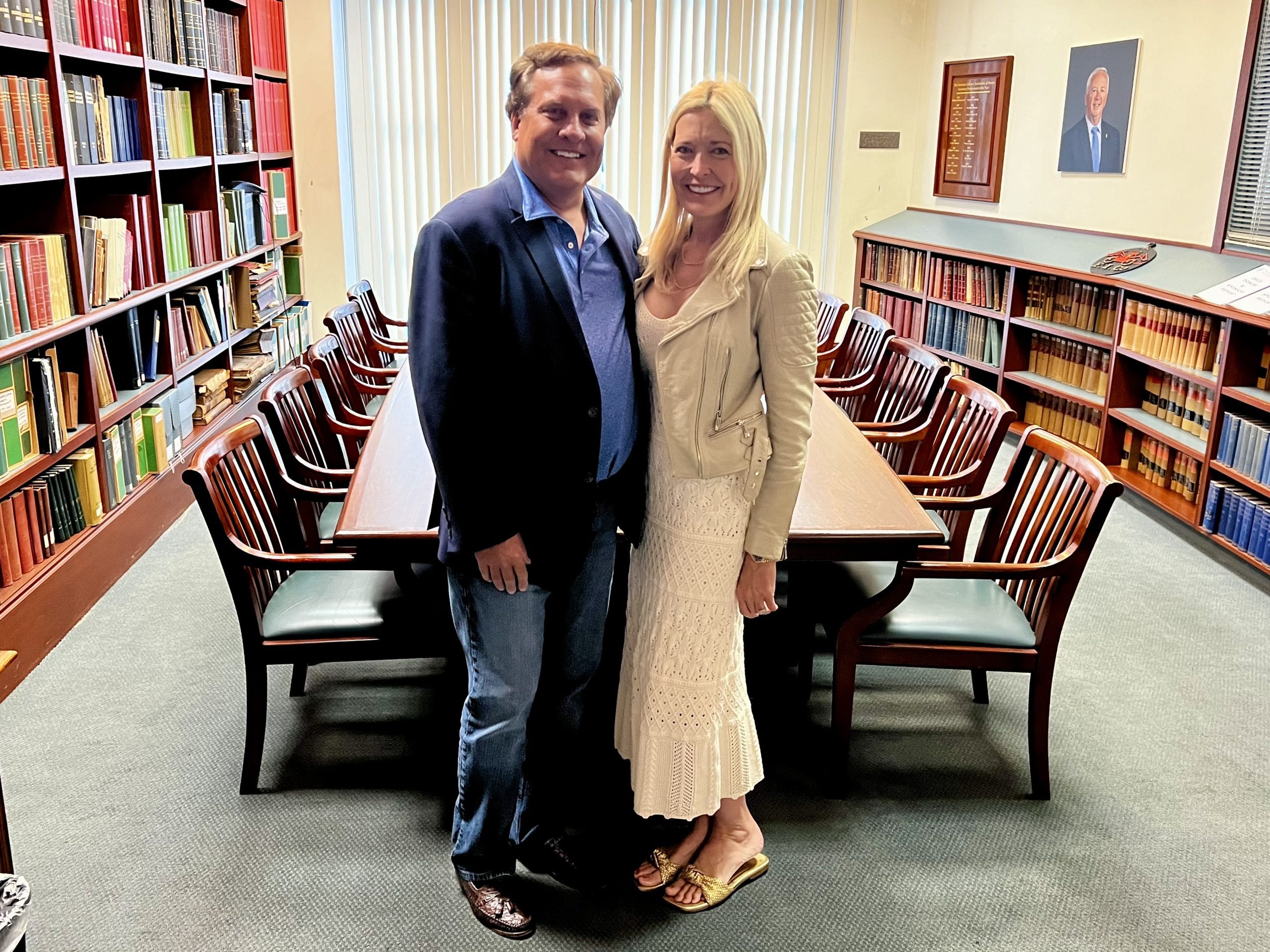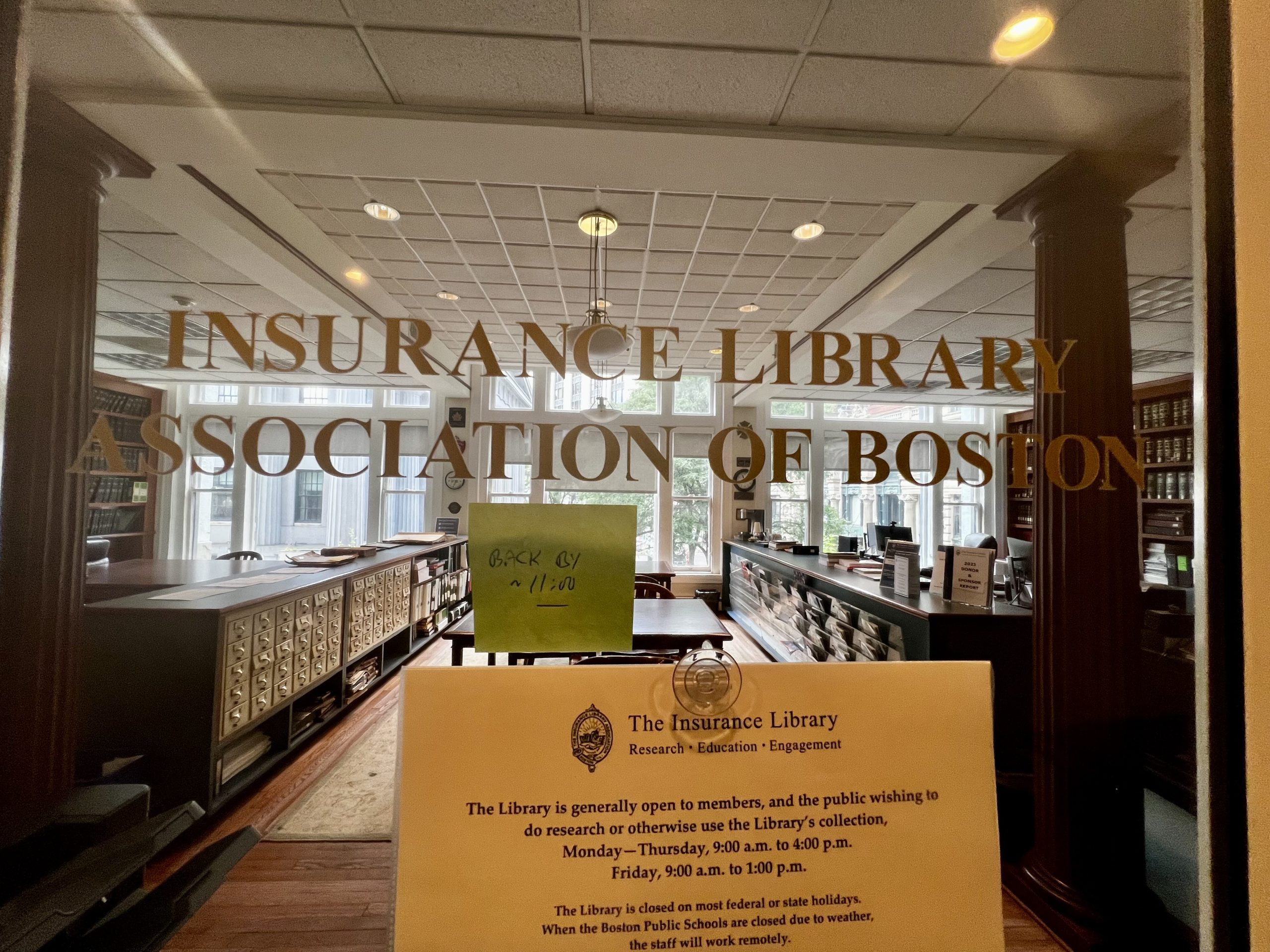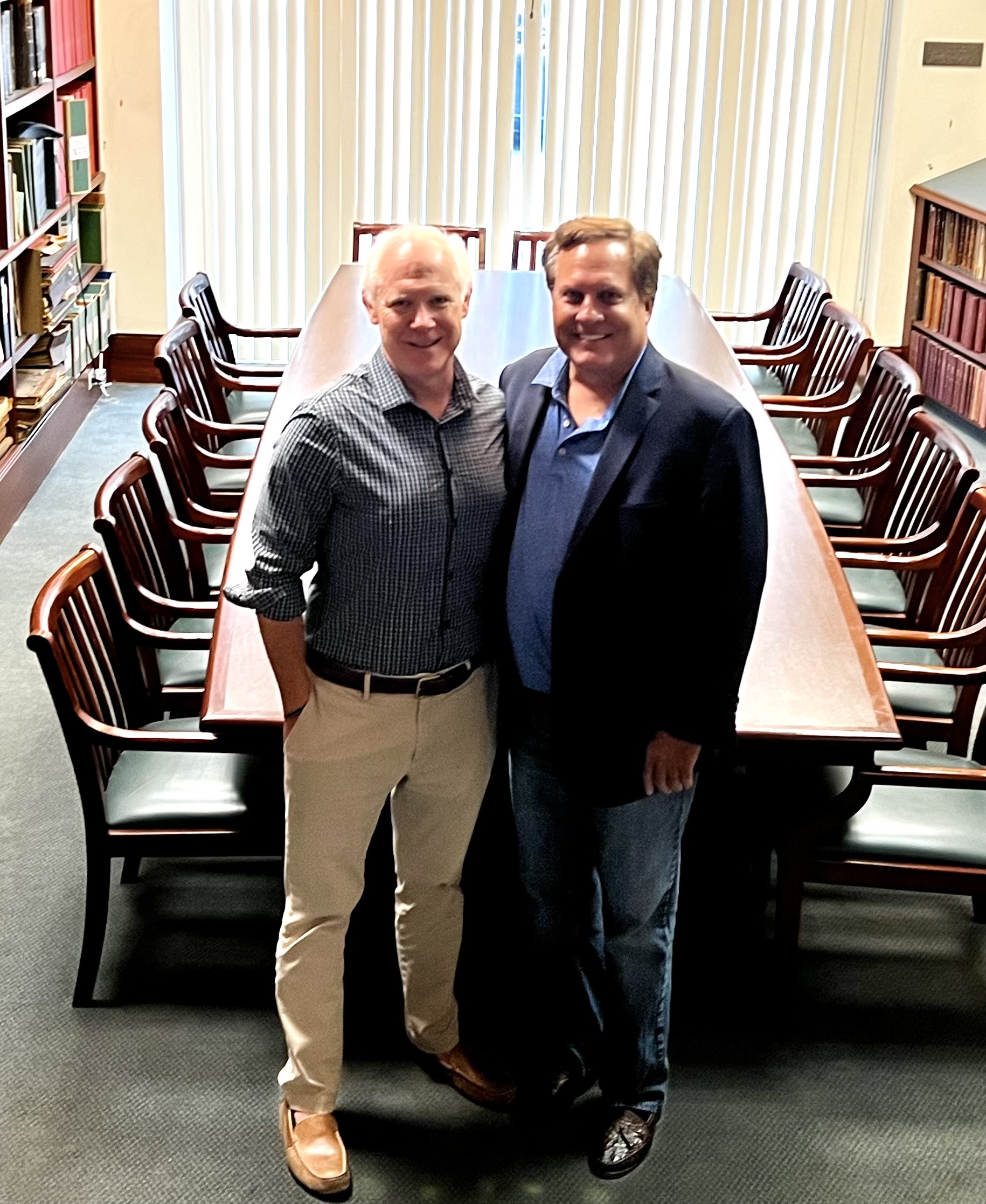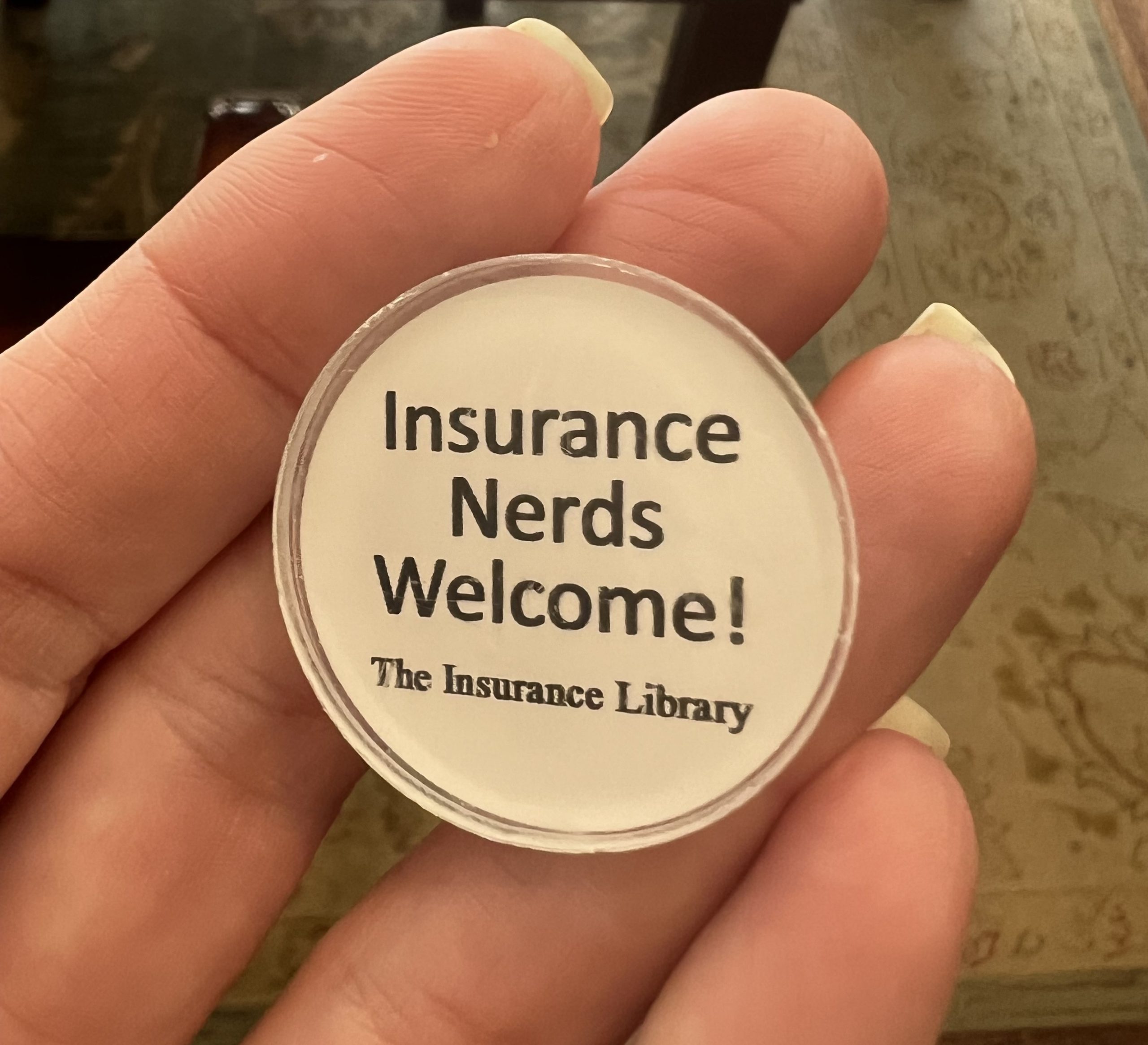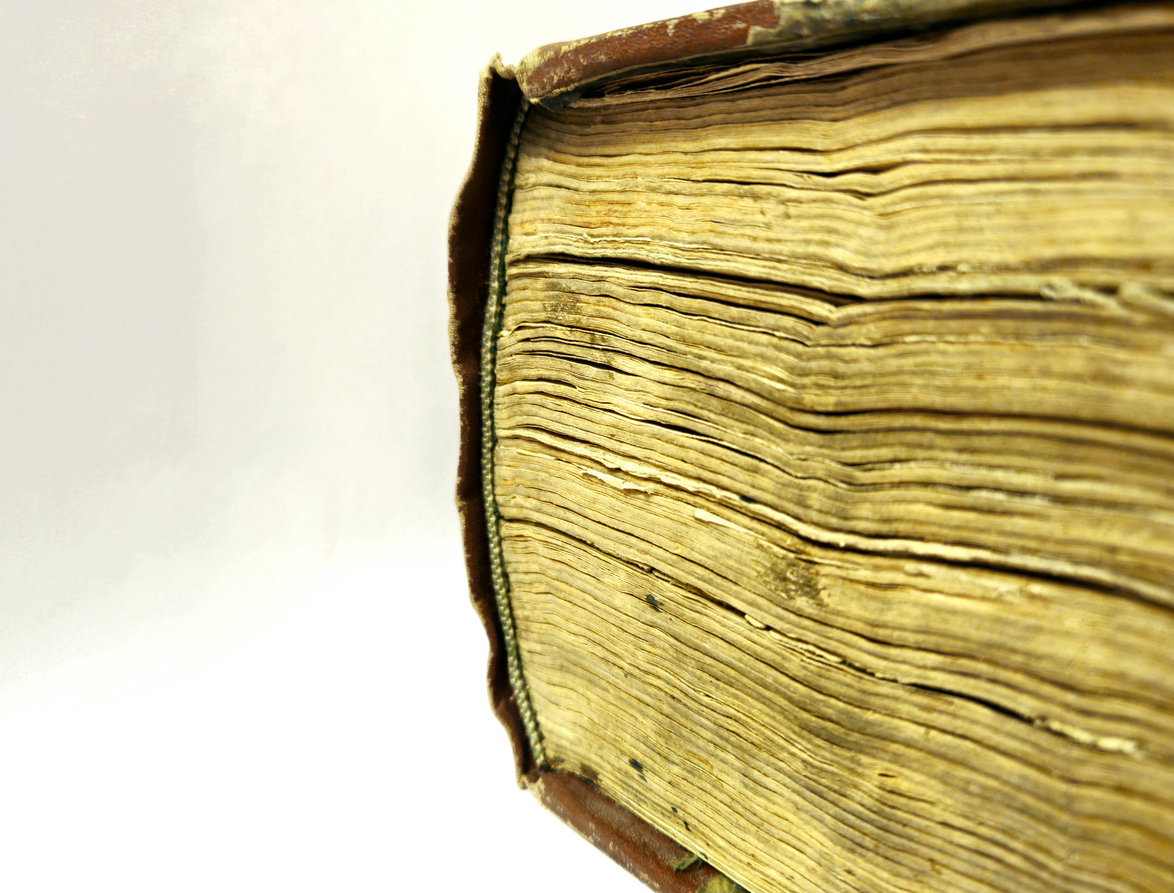Imagine a man on a mission, a quest for knowledge that rivals Clark Griswold’s relentless pursuit of the perfect nerd’s vacation. I embarked on a journey from the sun-soaked shores of Tampa to the hallowed halls of the Insurance Library Association of Boston with visions of endless shelves brimming with insurance maps and dusty 19th-century insurance treatises. I could hardly contain my excitement, but alas, fate had other plans. As I approached the library’s entrance, my heart sank. The doors were locked, and my dreams of insurance-fueled enlightenment were shattered. I knew what Clark Griswald must have felt when his hopes of a fun-filled trip to Walley World were crushed. This was the sign on the door:
I left and came back later, and the doors were still locked. But after a couple of calls, the library’s Executive Director, Michael Pezza, appeared. My world and attitude instantly changed as he took Donice and me for a tour. Donice said she was snookered when I promised to take her on a date nobody else would ever think of.
Here is a picture of Michael Pezza and me in the downstairs research area:
The library’s website describes itself and its history:
The Insurance Library Association of Boston was founded in 1887. It is the country’s first, and only remaining, independent library dedicated solely to the subject of insurance.
Our location at 156 State Street is in the heart of Boston’s historic Financial District, just steps away from Quincy Market. The insurance industry in New England was started by marine insurance underwriters in offices on State Street, and other insurers, agents, and brokers soon followed. By the late 19th Century, insurance had become such a large part of the Boston business community that insurance businesses spilled over into a web of nearby streets.
The Library’s first home was at 55 Kilby Street (now known as 10 Liberty Square). It then moved to four other nearby locations before its 1981 move to where it is today, just a quick walk from our original location.
The Library’s mission is to provide members of the insurance, risk management, and legal communities, and the public, with excellent research resources and services, high-quality educational programming, and opportunities for networking and engagement.
The Insurance Library is a nonprofit organization recognized as tax-exempt under section 501(c)(3) of the Internal Revenue Code Service and as a public charity by the Commonwealth of Massachusetts.
The Library does not receive any public funds: we are supported solely through membership dues, revenue from our paid educational programs, event sponsorships and ticket sales, and through the generosity of donors to our annual fund drive. All of this support allows us to continue to expand our services, education programs, pro bono services, and engagement events.
A Rough Notes article, Proud Tradition, Noble Mission, noted the following about the library:
The library’s mission statement embodies a lofty purpose: ‘The Insurance Library enriches the insurance and risk management community by preserving the history of insurance, by offering unsurpassed research services, by providing and supporting education, and by facilitating engagement.’
Its areas of service are historical collection, research services, professional education, and networking events. The historical collection is home to a wide range of documents, materials, and ephemera related to risk management and insurance. It is also a repository for antique fire marks, Sanborn underwriting maps, historical policies, and modern policy forms.
The library has a public mission yet receives no public funding. Revenue comes from membership dues, education, research fees, and donations.
The reason why this library is important to me is because it has information and historical proof about insurance. Knowing how the insurance product was made and how those in the industry intended for the product to work is important when arguing how and why the current product and insurance methods were derived. Modern forms are slightly revised revisions of previous insurance contracts, which were changed for various reasons and are sometimes explained in these older treatises. Finding the old forms, treatises, and other reference materials simply provides me with a better understanding of the insurance product, which I can use in my practice, advocacy and teaching.
This must sound pretty boring to many. Donice was underwhelmed when she found out about my plans for a novel date. Maybe this button sums up the excitement about what only a few can appreciate:
My current academic project is about the source for the term “proof of loss” and what it meant at its inception, long prior to the term being placed in statutory standard fire policies. You won’t find that information and knowledge in insurance case law, but only in these important archival repositories.
Thought For The Day
Libraries allow children to ask questions about the world and find the answers. And the wonderful thing is that once a child learns to use a library, the doors to learning are always open.
—Laura Bush

